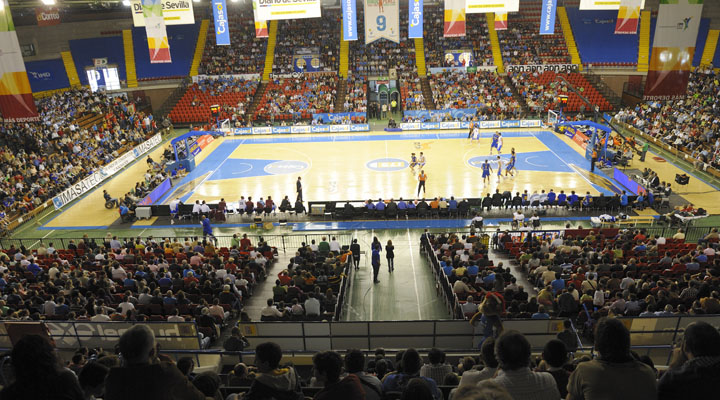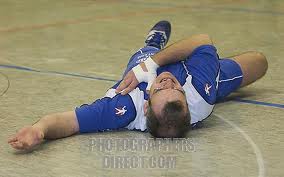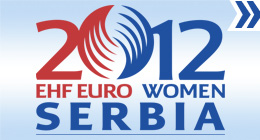
Michael V. Knudsen of Flensburg and Denmark; who or what prevents him from playing in the World Championship?
Although I recently commented briefly on the apparent increase in injuries to top players, and the possible impact of the Olympic Games, the topic of the overload for the elite players has not caused major headlines. Yes, some clubs with Olympic players have commented on the difficulties in getting those players reintegrated when the new season was about to start, and there have been some suggestions that the increase in injuries could be related to the added workload, but I had really expected more of a boost to the debate about the competition calendar.
But now we have had a sudden signal that clubs and players may become fed up with the status quo and the lack of serious action on the part of those who have the main role in determining the calendar and thus the workload. With two different versions being presented, it became clear that Michael Knudsen from Flensburg and Denmark had been ruled out from participation in the World Championship next January. It had nothing to do with injuries. Rather, it was suggested (supposedly according to statements from Knudsen) that Flensburg had forced him to accept such a clause as a condition for having his contract extended. By contrast, Flensburg insisted that the decision was really initiated by the wishes of the player himself.
The news caused an outrage in Denmark, because Knudsen is a key player. It was also noted, on the one hand, that such a contract clause is not permitted under IHF regulations and, on the other hand, Knudsen was criticized for showing up at a Danish training camp if he was not going to be a team member in January. It would not be the first time that a player had been formally prevented from his/her club to participate in a World Championship. But it could really trigger a major debate about who has the prerogatives, the club or the national federation. It should be recognized that the players are really caught in between. They do not want to be forced to abandon their national team, if they do not have their own reasons for staying out. But, of course, they do not want to spoil the relations with their employer, the club, so it would always be possible to come up with a plausible explanation that nobody could formally criticize.
Essentially the issue is linked to two basic conflicts: first, it has been argued for a long time that it is just too much to have more than one major international championship per year. So in a sense it is the participation of handball in the Olympic Games that becomes the trigger. But as nobody suggests that this should be changed, then it is the pattern of having either a World Championship or a European Championship every year that is the crux. Compromises have been sought but with no result so far. The EHF does not really want to budge, and the IHF must protect the interests of all the other continents. The second issue is that, added together, games in the national leagues, the EHF Champions League and for the national teams simply add up to being a bit too much. (When one talks about the national team, this includes not just the Championships but the qualifying events leading up to them).
Martin Heuberger, the men’s national team coach in Germany, suggested recently that it would be fair and necessary to ‘shave off’ some portion of each of the three workloads. Of course, one could suggest that the top nations could have their burden reduced by entering at a later stage in the qualifying events, as compared with the model that is being played precisely this weekend. And, as I have done before, one could argue that the current Champions League model causes too many ‘unnecessary’ games for the participants. Or one could suggest, as Heuberger did, that the number of teams in the German Bundesliga should be reduced. Every year, essentially the same teams gain the top positions and then also play in the Champions League or the EHF Cup, while several other teams are clearly at a lower level. But Heuberger got the reaction from his own Federation that “it would really be difficult to deprive some teams of the chance to play in Bundesliga, and even the top teams want the extra income from a couple of additional home games”. Clearly, one could argue ‘forever’ how the reduction should best be achieved.
But the reality that most people overlook, when they propose one solution or the other as ‘the obvious one’, is that the situation is far from similar in all the top handball countries in Europe. The one thing that most of them have in common is that they attach a lot of importance to their national team, but even that may vary from country to country. In some countries there is relatively more interest in the EHF Champions League, and handball fans rally around the team that represents their country. But so far, it is much more common that the fans really care about their own club and everything else becomes secondary. However, that is very much related to the third dimension: many countries have a national league that, year after year, creates a strong interest on account of many evenly matched teams. But other countries, even some of the very best, have only one or possibly two dominating teams, so the league becomes unimportant. And then we have the unique case of Germany, who ‘has it all’. The Bundesliga has strong traditions, also among the smaller clubs, the national team is a matter of real pride, and they have at least six-seven teams in the EHF competitions.
So one of the reasons for reluctance in other countries to change things is that they primarily see the problem as one that is caused by the German situation. This has been quite clear from media comments and views expressed by fans. They are upset if a German club ‘interferes’ with the participation of a player on the national team in country X. And they do not have much sympathy for the ‘dilemma of the German clubs’. On the contrary, it reminds them that Bundesliga dilutes the quality of the leagues in many other countries. Perhaps the most interesting and astute comment I saw in recent time was along the following lines: ‘the problem is caused by Germany, where they have teams and players for an absolute elite league but still insist on adding many comparatively mediocre clubs that really belong in a lower league’. I can appreciate these arguments; and at least the strong divergence of views within Europe (and even more if one adds the top other countries in other continents) will make it really tough for the IHF and the EHF to achieve serious change.























